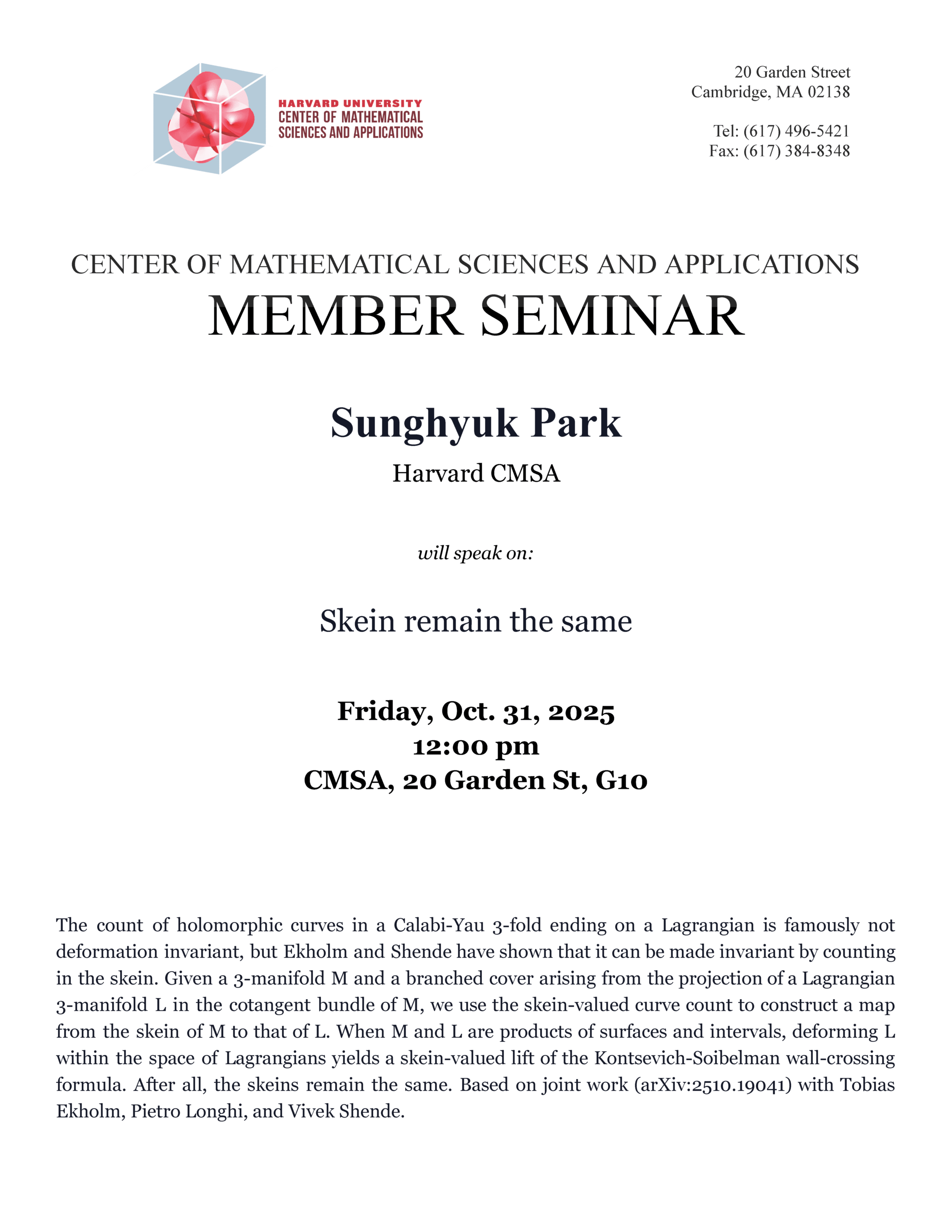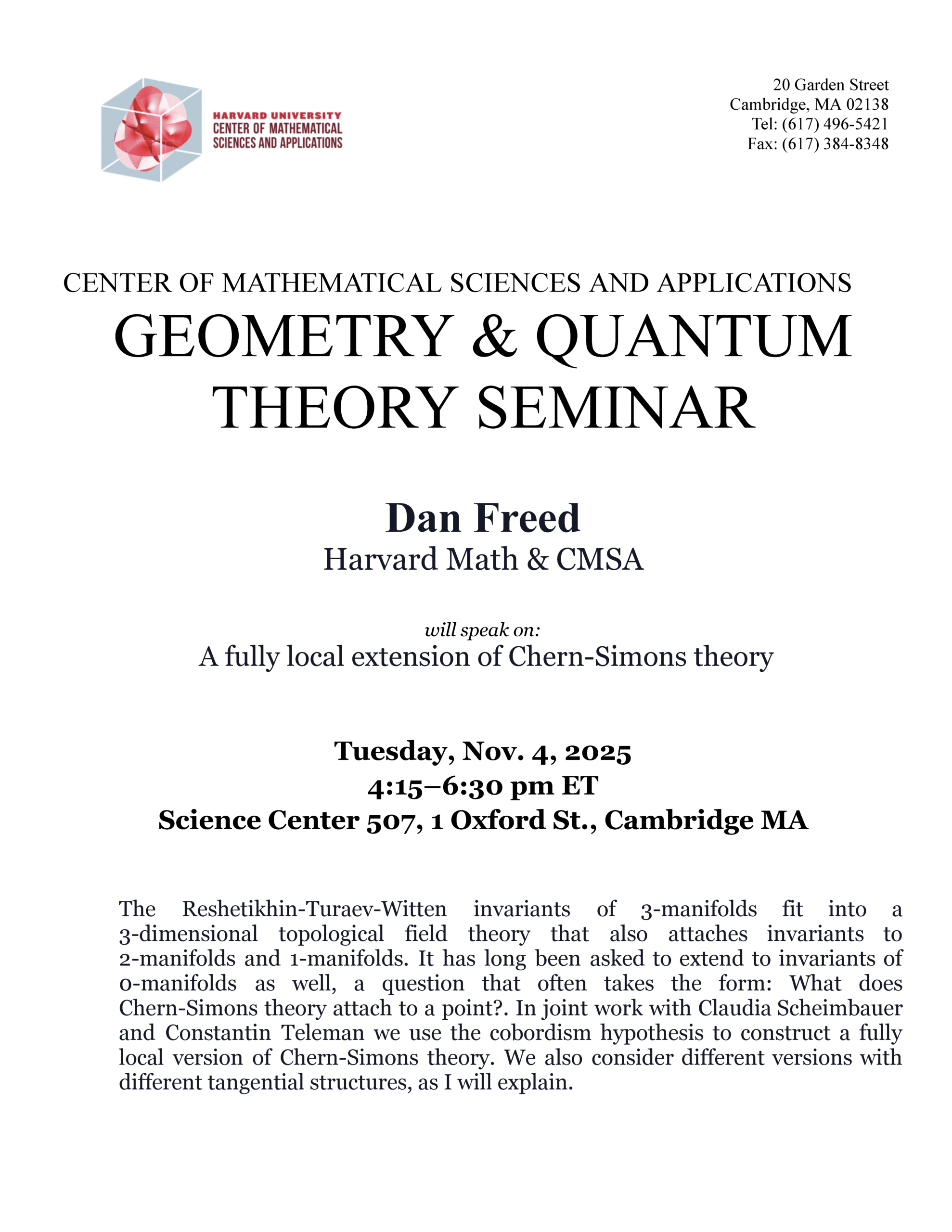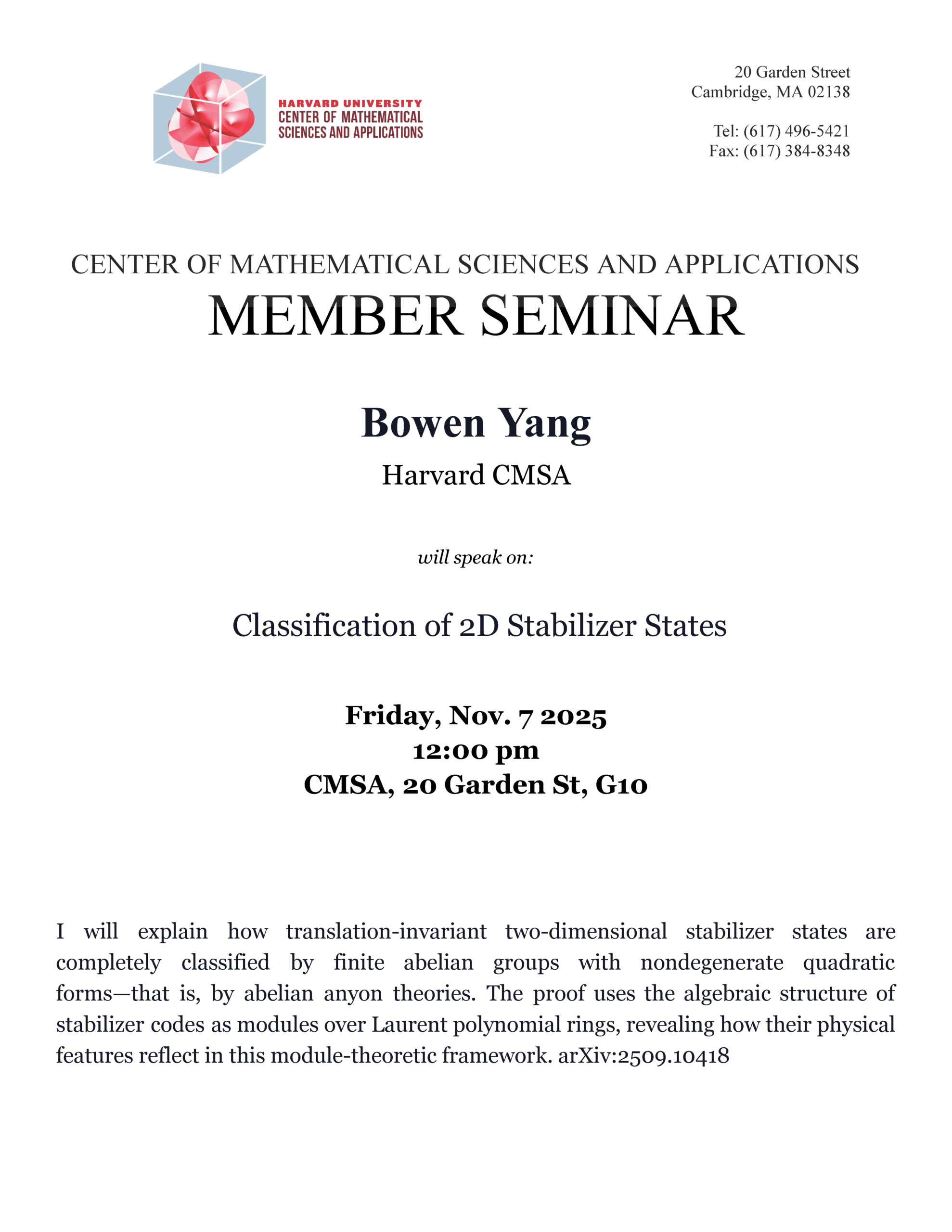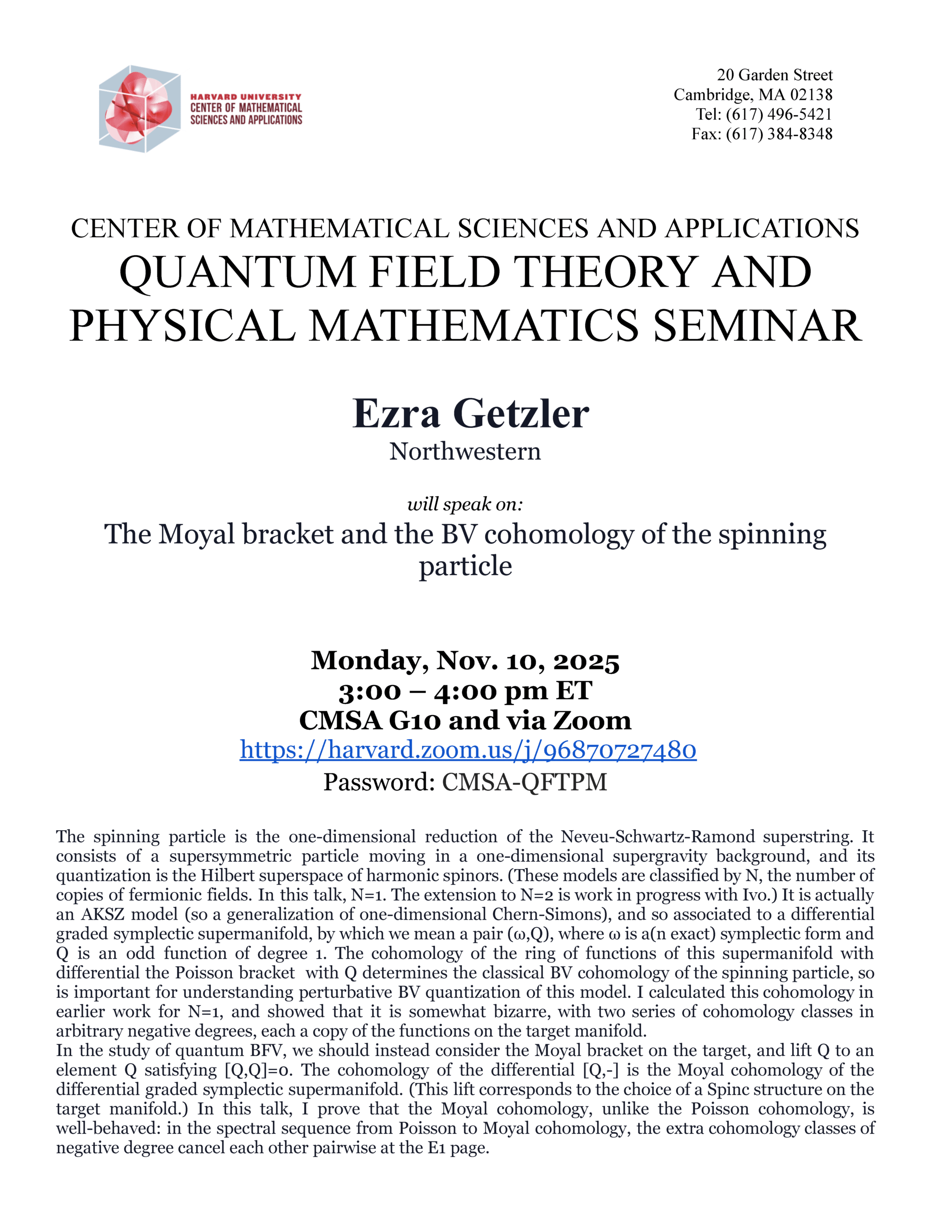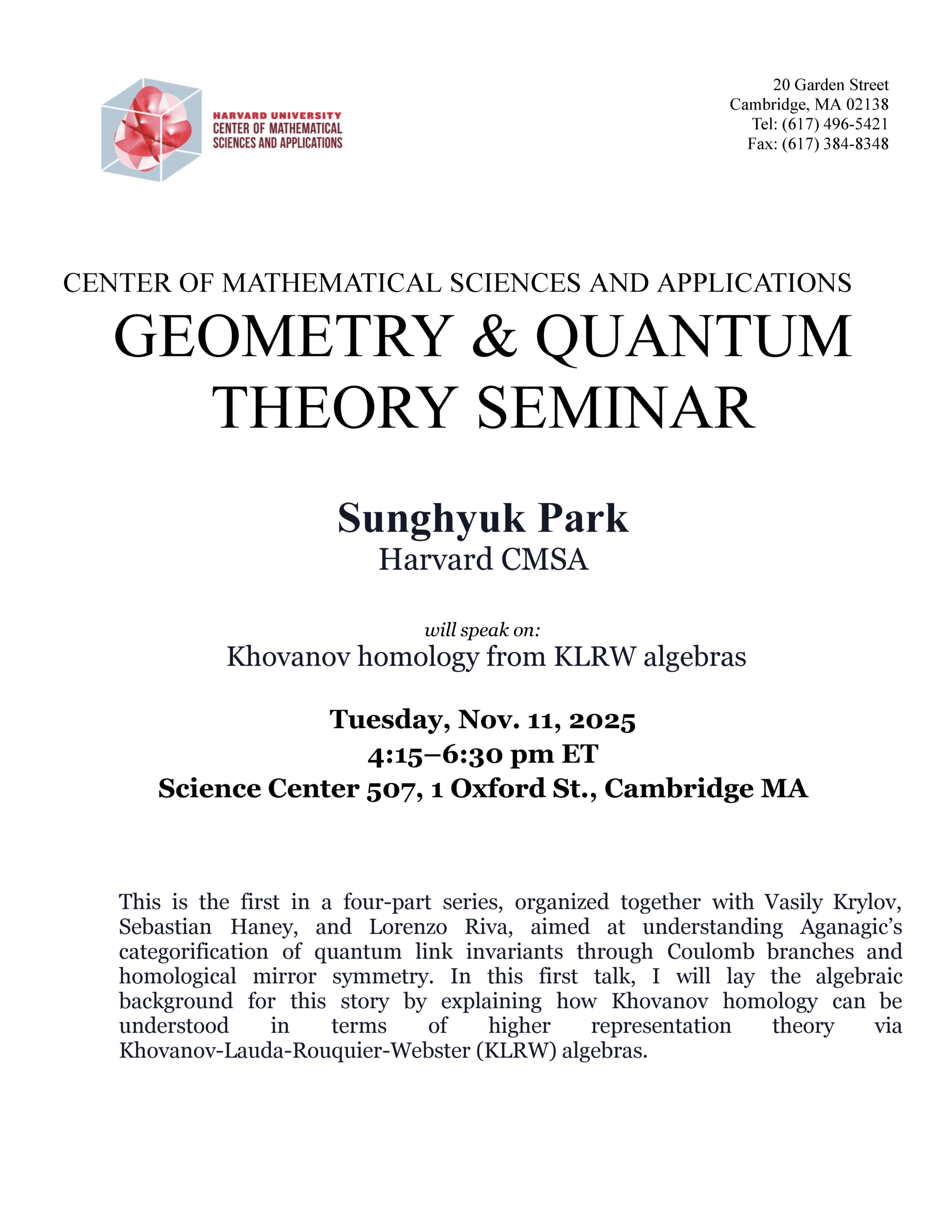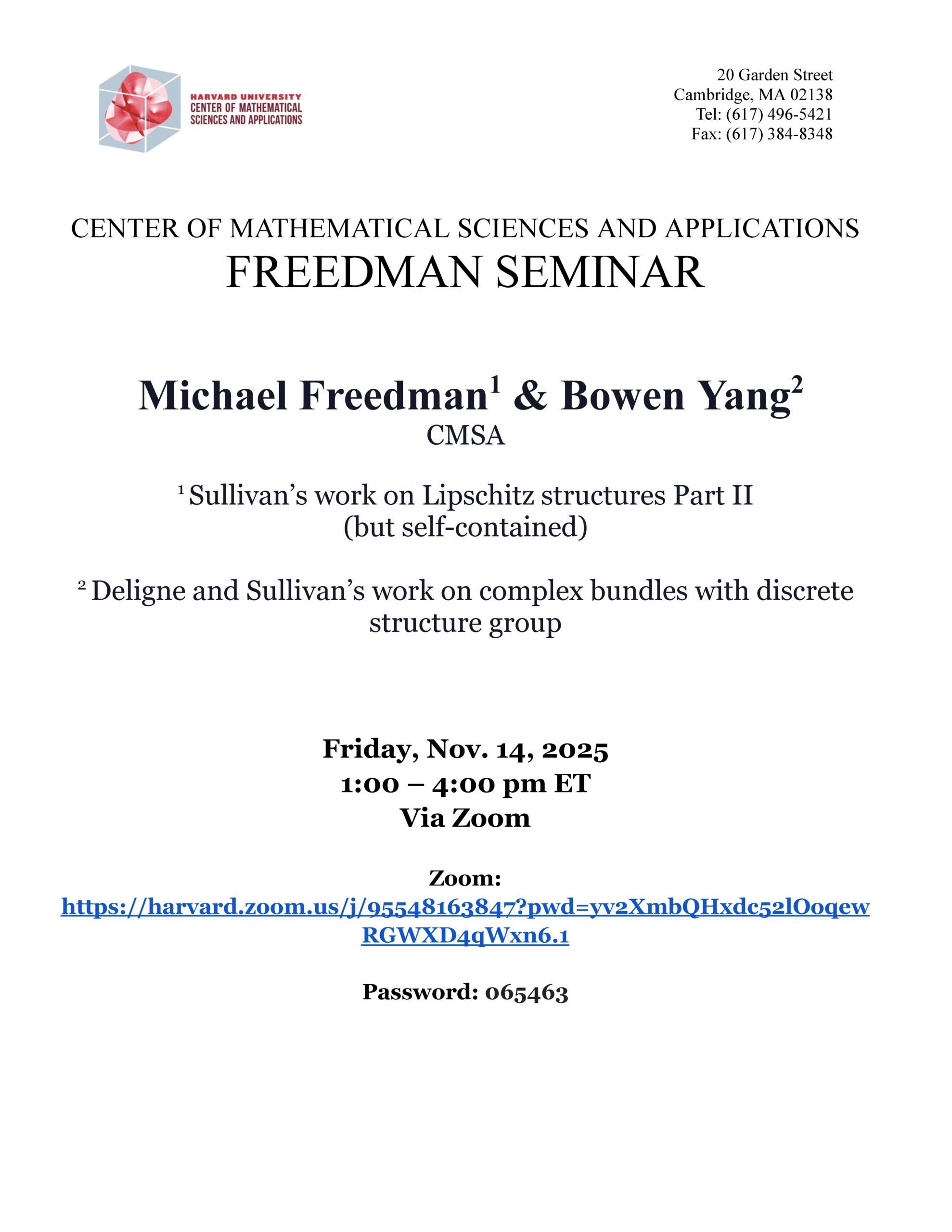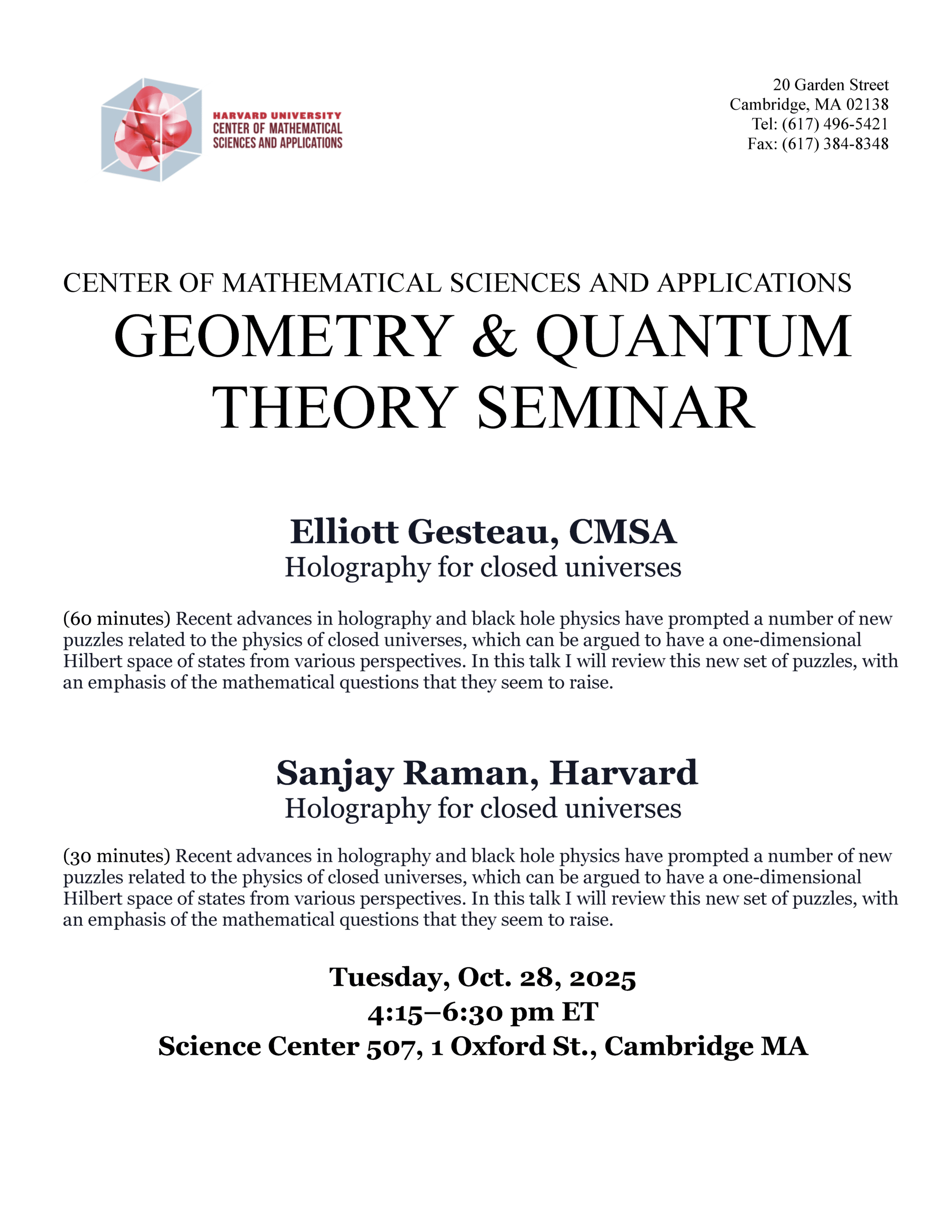
Geometry and Quantum Theory Seminar
Science Center 507 1 Oxford Street, CambridgeGeometry and Quantum Theory Seminar Speakers: (1) Elliott Gesteau, CMSA (60 min) and (2) Sanjay Raman, Harvard (30 min) (1) Title: Holography for closed universes Abstract: Recent advances in holography and black hole physics have prompted a number of new puzzles related to the physics of closed universes, which can be argued to have a one-dimensional […]



